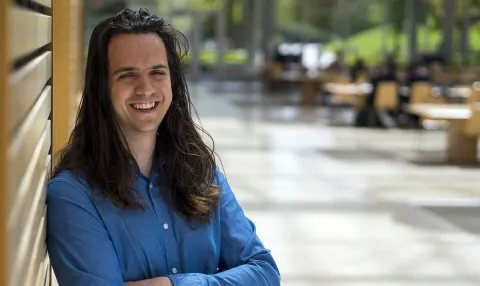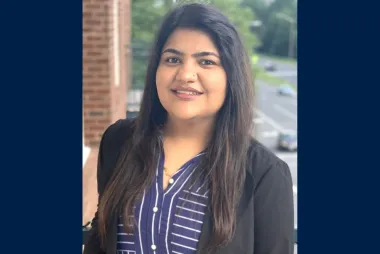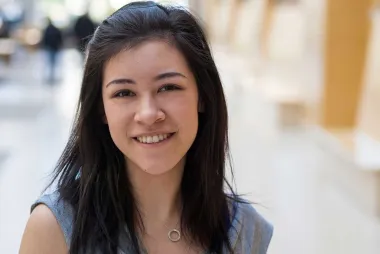“One begins to realize that problems worth solving are also problems that can’t simply be answered by asking Siri.”

Casimir Kuzyk
- Degree: Master of Applied Science
- Grad year: 2019
- Program:
- Campus: Vancouver
Casimir has shown a great aptitude for entrepreneurial activities during his time as a master’s student in electrical and computer engineering at UBC. His research project AweSEM is based on developing a scanning electron microscope (SEM) for about 100 times less than the cost of a commercial SEM. By using frugal engineering concepts, he and his team aim to make high resolution imaging technology more accessible to students, researchers and clinics around the world. He has participated in the e@UBC Lean Launch Pad program, and was a finalist in the Innovation on Board, RBC Get Seeded, and UN World Challenge Challenge competitions. On top of his entrepreneurial activities, Casimir strives to give back to the UBC community by acting as the Electrical and Computer Engineering Graduate Student Association (ECEGSA) VP Social Internal, and volunteering for the Canadian Engineering Education Association conference, UBC Applied Science Turkey Trot, and Science Rendezvous.
Why did you choose engineering?
I have never been able to narrow my interests down to a single field of study, as I find all fields of study very interesting! For me, engineering was an opportunity to explore as many fields as possible. For my undergraduate degree, I studied nanotechnology engineering, which was essentially generalized engineering at the nanoscale. This degree allowed me to explore many different options from pharmaceuticals to microelectronics — and finally to my current research on electron microscopy.
Tell me about your experience in engineering. What have you learned that is most valuable?
Throughout my work experience, courses and graduate studies, the most valuable thing I’ve learned is how to ask the right questions. One begins to realize that problems worth solving are also problems that can’t simply be answered by asking Siri. Not only is it important to ask the right questions to your peers and professors, but also to Google. It is easy to convince yourself that the world is flat if you are asking the wrong questions to begin with.
What advice would you give a student considering a graduate degree in engineering?
Make sure that you have clearly defined objectives before applying to grad school. It is not always enough to just want a degree that will lead to a better job. I chose graduate studies to explore the world of entrepreneurship, particularly in the space of a high-tech project. Even if I were to not receive a formal degree in the end, I wouldn’t mind; the experiences I’ve gained thus far have been well worth my time. Whether it is changing the world through fundamental scientific discoveries, or bringing an application to life, there must be more to a graduate degree than just the title!
My second piece of advice is to get to know the supervisor you are interested in working for. Before applying to UBC, I had many skype and e-mail conversations with my current supervisor. In doing so, we were on the same page from the beginning, and this has led to an amazing student-supervisor relationship. I’ve heard countless horror stories of poor student-supervisor relationships, which could have potentially been avoided given pre-acceptance communications.
Where do you find your inspiration?
I am inspired by the unknown. I imagine that a reality in which all questions have been answered would be a terribly boring one. You could say that “Curiosity killed the Cas[imir].”
I hope that AweSEM can help inspire curiosity in the generations to come. By looking under an electron microscope, many questions are answered, but at the same time, many more questions arise. When I was around the age of 10, I was given a small optical microscope. I would spend my days simply looking at the microscopic structure of different household items, amazed at the world I had previously been so ignorant of when it was right under my nose the whole time.
How will you go on to make a difference in our world?
I hope to make high resolution imaging more accessible by creating AweSEM, an electron microscope that is a fraction of the cost of what is currently available. This device has the potential to create a difference in many fields — including clinical diagnostics, materials science, microelectronics and education — and I hope that it will change how people view the world, from how they view the nano-world, to the general concept of scientific exploration. There are many other new technologies that are waiting for the right group of people to make them more accessible.

